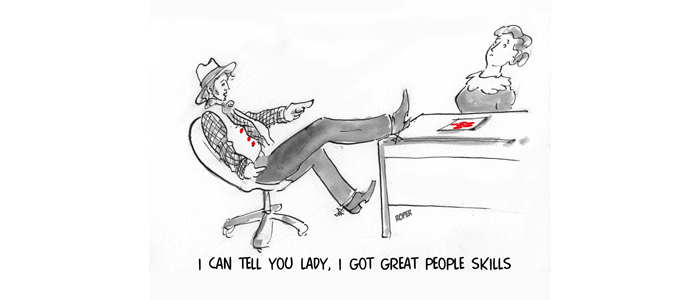The vast majority of companies fall in the middle between a start-up and a fully mature organisation, and need different management and leadership from either of the other two.
When I started my last ‘proper’ job in the early 1980s I quickly registered on all the company courses, and in short order learned active listening, assertion, interviewing, coaching skills, communication, supervisory skills, time management and many more skills which have become so much part of my toolkit that I can’t remember a time when I didn’t know and use them. All managers went through the same curriculum, so we all shared a common vocabulary and body of knowledge which we used together and separately in running the company.
Then came the late ’80s and repeated recessions. I was by then a consultant, and noticed there was less and less call to train people in all the useful stuff that was now part of my DNA. Instead we became involved in other good things, like Total Quality Management, World-Class Practice and Lean Management Systems. The emphasis was no longer on personal management skills, but on operational excellence, so that companies could ride out the tough times and survive.
Now hopefully we are, at least at the moment, the other side of the hard times. The companies that did all the right things have survived, and are leaner and smaller than they once were, led by managers who came on the scene in the late ’80s onwards.
What are these managers finding?
They’re finding that they never had the benefit of all that incredibly useful training, because during the lean years there was no time or money to spare, and some of those skills were forgotten. Managers ended up managing by the seat of their pants, through a mixture of personality and troubleshooting.
But what has happened to the practical everyday skills of being able to manage yourself and others? How do you manage your thinking, so you are not driven by your emotions and perceptions; communicate so people understand what you want and can deliver it; or engage people’s hearts and minds, so they are motivated to partner with you in achieving your organisation’s goals? Leaders and managers of 2G organisations often no longer even know these specialised skills exist. They fall back on the social skills they use to get on with others in their personal lives, but these only work for so long. They are fine for building a basic cordial relationship with staff, but they quickly fall down when the need is for critiquing performance, calling someone out for inappropriate behaviour, or leading a team through a tough project.
Where are we now?
Now, 30 or so years on, we find the call is once again to train people in all the classic skills of managing yourself and managing others. Sometimes we pull something out of the toolkit and offer it to a struggling client, to find they are incredibly grateful for something which we feel every manager of people and organisations should already have access to. There is a whole body of professional communication and management skills that we are finding is once again in demand.
So we are delivering programmes in classic management skills, but this time, we are delivering them also to the most senior people in the company. And the effect is magical: we are seeing clarity emerge from confusion, and excellent communication emerge as people once more share that common vocabulary and body of knowledge and skill to bring them together in running their company.
